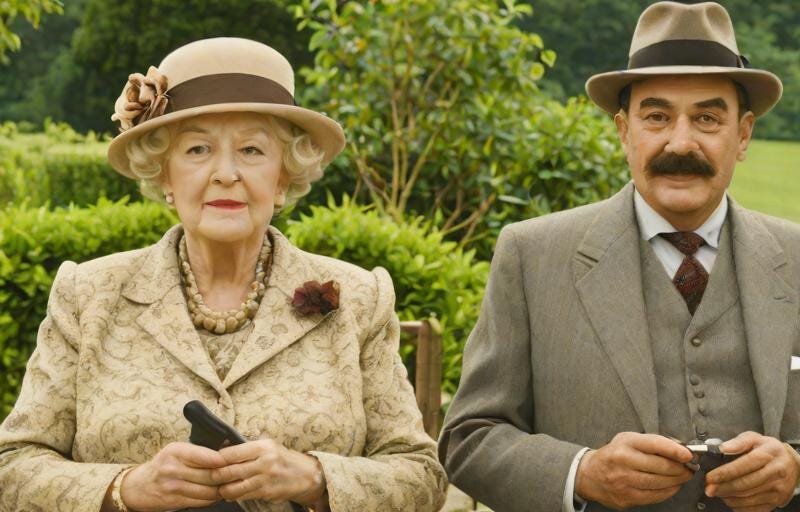What Agatha Christie Teaches Us About Facilitation
Becoming a facilitation detective
Agatha Christie, the undisputed grand dame of murder mystery novels, created masterpieces in storytelling, suspense, twists, and turns. Even better, she crafted two fascinating characters: Hercule Poirot and Miss Jane Marple.
They are mesmerizingly unique in their signatures and show an incredible skill set that is highly relevant to facilitators. This is not to say that murders are to be expected in workshops (dips on the novel title murder in a seminar); however, some competencies can be beneficial in our line of work.
Observation. The secret often lies in the little clues. Every single thing that happens in a workshop is information for the facilitator. The smallest detail is relevant, yet we do not always capture them as we are too often focused on the big picture. It is essential to practice an eye for detail. This could, for example, be behaviors (or non-behavior), comments, reactions, actions, or contributions (including the lack thereof).
Deduction. Noticing and capturing the information is only one side of the coin. As the two detectives show, it is essential that we also make sense of what we found out. It is like a puzzle, where you can start to deduct behaviors and developments within the group when you look carefully. You begin to anticipate how participants and dynamics will play out, allowing you to adapt, pre-empt, and prevent these potentially unwanted developments.
Individual conversations. As Poirot and Marple execute masterfully, individual discussions are relevant. These are often down-prioritized to logistics, rearrangements, breaks, or adaptations. However, such conversations can provide essential insights and information. Still, they also help you connect with potential outliers and dominant or withdrawn people and build personal relationships that strengthen your acceptance and grow trust.
Intuition. It is often assumed that we cannot train intuition; however, we learn to understand it. Our intuition grows with our experience and learning. Nevertheless, we can start to understand our instincts and the proverbial gut feelings that indicate preferences, doubts, and other emotional reactions. We can learn when and how to react and explore them and how they become essential to our practice. We all have famous hunches, and knowing how to make them work in our favor is a game-changer for our facilitation practice.
Suspense. The most brilliant part of Agatha Christie's stories is her ability to create suspense. Suspense is also a potent tool in facilitation because it keeps your participants’ attention high, ensures engagement, ties the workshop together, and stimulates curiosity. Learning how to craft suspense skillfully into your workshops and designs can lift the participants' experience to another level.
Facilitators in all other professions have something to learn. Not always, however, is it so easily accessible as in the famous books of Agatha Christie stories. Learning from these famous detectives not only elevates your facilitation practice but is also an extremely enjoyable process.
Have fun!



